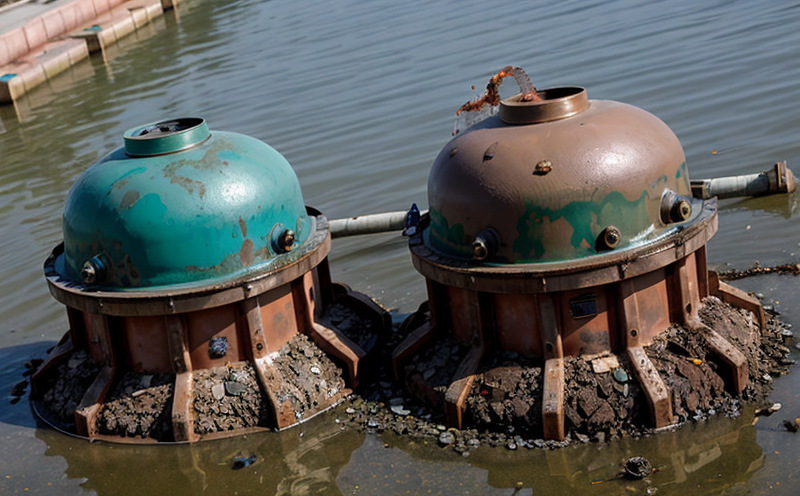ISO 11474 Corrosion Fatigue Testing
The ISO 11474 standard is a cornerstone in the field of metallurgy and material testing, particularly for understanding the behavior of materials under cyclic stress in corrosive environments. This type of testing is crucial for industries where durability, reliability, and safety are paramount, such as aerospace, automotive, and chemical processing.
Corrosion fatigue occurs when a material experiences repeated mechanical loading while simultaneously exposed to an aggressive environment like salt water or acidic solutions. The result can be catastrophic failures in critical components, leading to significant economic losses and potential safety hazards. ISO 11474 provides a standardized method for evaluating the resistance of materials to this type of degradation.
The test involves subjecting specimens to cyclic loading at various stress levels while maintaining exposure to the corrosive environment. The primary goal is to determine the fatigue life, or the number of cycles before failure, under these conditions. This information is vital for designing and selecting materials that can withstand operational stresses without succumbing to premature corrosion.
The process begins with careful specimen preparation, ensuring that any surface irregularities are minimized to focus solely on the effects of the corrosive environment and cyclic loading. Once prepared, the specimens undergo a series of tests designed to simulate real-world conditions as closely as possible. This includes controlled temperature and humidity levels, precise control over stress amplitude and frequency, and accurate measurement of strain.
The ISO 11474 standard specifies detailed protocols for setting up the test environment, including the selection of appropriate corrosive media, the application method, and the duration of exposure. The testing apparatus must be capable of accurately applying cyclic loading while simultaneously monitoring environmental parameters. Advanced instrumentation is used to capture data on stress-strain relationships, strain rates, and changes in material properties over time.
The results of ISO 11474 corrosion fatigue tests provide valuable insights into the durability and reliability of materials under specific conditions. This information can be used to optimize design parameters, select appropriate materials for new products, or improve existing processes. The test also helps in understanding the interplay between material properties and environmental factors, which is essential for developing materials that are both robust and sustainable.
For industries like aerospace and automotive, where weight reduction and fuel efficiency are critical, ISO 11474 testing ensures that lightweight materials do not compromise safety or performance. In the chemical processing industry, it helps in selecting materials that can withstand harsh environments without degradation, thereby enhancing plant safety and operational reliability.
The standard is widely recognized for its rigor and accuracy, making it a preferred method for quality assurance and compliance activities across various sectors. By adhering to ISO 11474, organizations demonstrate their commitment to excellence in material selection and engineering practices.
Applied Standards
| Standard Number | Description |
|---|---|
| ISO 11474:2019 | Cyclic loading of materials in corrosive environments to determine fatigue life and resistance to corrosion. |
Environmental and Sustainability Contributions
The ISO 11474 standard plays a crucial role in promoting sustainability by helping industries select materials that are not only durable but also environmentally friendly. By ensuring that materials can withstand harsh conditions without degradation, the test supports the development of products with longer lifespans, reducing waste and resource consumption.
The data obtained from ISO 11474 testing can be used to optimize material selection processes, leading to more efficient use of resources and reduced environmental impact. This is particularly important in sectors where product lifecycle management is critical for sustainability.
Moreover, the test helps in identifying materials that are less susceptible to corrosion under specific conditions, which can lead to a reduction in maintenance costs and operational downtime. This contributes to a more sustainable operation by minimizing energy consumption and resource use associated with repairs or replacements of failed components.
Competitive Advantage and Market Impact
- Evaluate material performance under real-world conditions
- Demonstrate compliance with international standards
- Optimize product design for durability and reliability
- Increase market credibility through rigorous testing protocols
- Identify materials resistant to corrosion in specific environments





